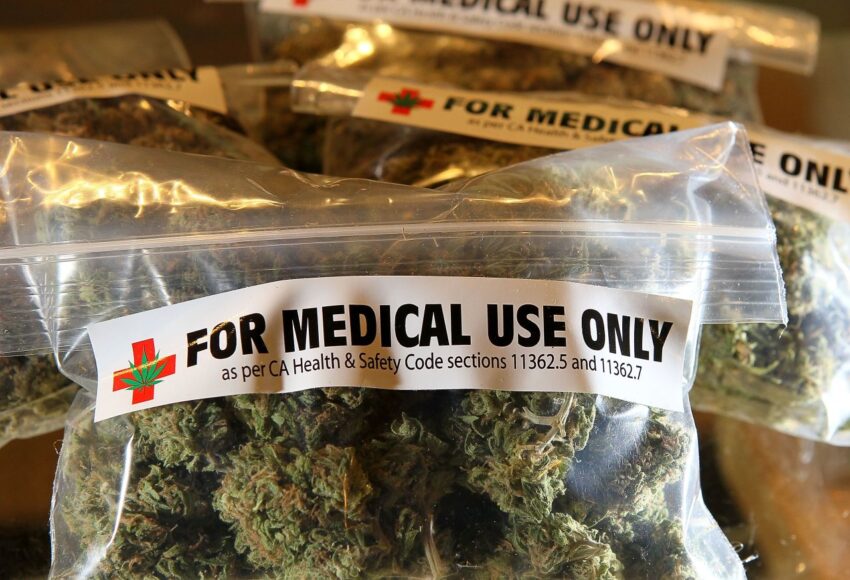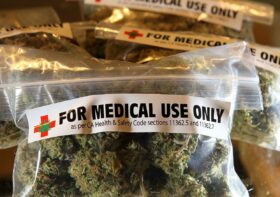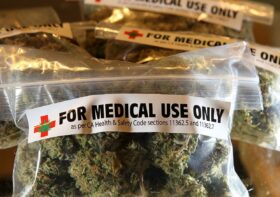Can Medical Cannabis Help with Sleep Disorders?

Sleep disorders are becoming increasingly common in today’s fast-paced world. Conditions like insomnia, sleep apnea, and restless leg syndrome affect millions of people, often leading to reduced quality of life and long-term health problems. As traditional treatments such as sleep medications and therapies are not always effective or desirable, many people are exploring alternative options, with one of the most talked-about being medical cannabis.
In this article, we will delve into the potential of medical cannabis in treating sleep disorders, how it works, its legal status, and important considerations for those looking to use cannabis as part of their treatment plan.
Overview of Medical Cannabis
Medical cannabis refers to the use of cannabis plants or their compounds (like THC and CBD) for therapeutic purposes. The plant contains a variety of compounds, most notably tetrahydrocannabinol (THC) and cannabidiol (CBD), which interact with the body’s endocannabinoid system. This system helps regulate essential functions like sleep, mood, appetite, and pain.
Cannabis is increasingly recognized for its potential to help with a wide range of medical conditions, including:
- Chronic pain: Cannabis has been shown to relieve pain associated with conditions such as arthritis, fibromyalgia, and cancer.
- Epilepsy: CBD, in particular, has been proven effective in reducing seizures in certain types of epilepsy.
- Mental health issues: Cannabis, especially CBD, has shown promise in treating anxiety, depression, and PTSD.
Regarding sleep disorders, cannabis has garnered attention due to its calming and sedative effects, which may help patients who struggle with insomnia or other sleep-related issues.
See more: Brisbane Sleep Study Clinics You Can
Can Medical Cannabis Help with Sleep Disorders?
Medical cannabis has shown potential as a treatment for sleep disorders. The cannabinoids in cannabis, especially CBD, are thought to have a relaxing effect on the nervous system, which can promote better sleep.
- Insomnia: One of the most well-known sleep disorders, insomnia affects millions of people. Research suggests that cannabis, particularly strains high in CBD and low in THC, may help individuals fall asleep faster, stay asleep longer, and experience fewer awakenings during the night. THC, on the other hand, is known to have sedative properties that can help people get to sleep.
- Sleep Apnea: While more research is needed, some early studies suggest that cannabis might help with sleep apnea, a condition characterized by intermittent breathing during sleep. Its ability to promote relaxation could help ease the symptoms of sleep apnea, although it is not a cure.
- Restless Leg Syndrome (RLS): RLS is another condition that disrupts sleep, causing an overwhelming urge to move the legs. Some studies indicate that cannabis may alleviate the symptoms of RLS, particularly by reducing pain and improving overall sleep quality.
However, it’s important to note that while cannabis may improve sleep for some individuals, its effects can vary from person to person, and more clinical research is needed to fully understand its potential and risks for sleep disorders.
Global Legal Status of Medical Cannabis
The legal status of medical cannabis varies significantly across different countries, and this can present challenges for those seeking treatment.
- Countries where cannabis is legal: In countries like Canada, Israel, and Germany, medical cannabis is legal and regulated, allowing patients with certain conditions to access cannabis through licensed dispensaries. These countries often have well-established frameworks for medical cannabis use, ensuring safety and quality control.
- Countries with regulated cannabis laws: Countries like the United Kingdom and Australia have legalized medical cannabis, but access is highly regulated. In these places, medical cannabis is typically prescribed for specific conditions and requires approval from healthcare professionals.
- Countries where cannabis is still illegal: In many parts of the world, cannabis is illegal for both medical and recreational use, including parts of Asia, the Middle East, and Africa. In these countries, patients may have limited options when it comes to seeking medical cannabis treatment.
This varying legal landscape can complicate access for patients who may benefit from medical cannabis, particularly those who live in countries where cannabis remains illegal.

The U.S. Legal Framework: Federal vs. State Law
In the U.S., the legal framework surrounding cannabis is particularly complex due to the conflict between federal and state laws.
- Federal Law: Cannabis is classified as a Schedule I controlled substance by the federal government, meaning it is considered to have no accepted medical use and a high potential for abuse. As a result, cannabis remains illegal at the federal level, which restricts research, banking access for cannabis-related businesses, and the ability to transport cannabis across state lines.
- State Law: Despite federal prohibition, over 30 states have legalized medical cannabis in some form. These states allow patients with qualifying conditions to access cannabis through licensed dispensaries, often requiring a doctor’s recommendation. However, the rules and regulations vary widely from state to state, with some allowing broad access and others being more restrictive.
As more states legalize medical cannabis, pressure is mounting for the federal government to reconsider its stance on cannabis, especially with growing evidence supporting its medicinal benefits.
Medical vs. Recreational Cannabis
It’s important to understand the difference between medical cannabis and recreational cannabis.
- Medical cannabis is used specifically for therapeutic purposes. It is typically prescribed by a healthcare professional to treat specific medical conditions like chronic pain, anxiety, or sleep disorders. Medical cannabis is usually regulated and only available through licensed dispensaries.
- Recreational cannabis is used for non-medical purposes, primarily for enjoyment. In some regions, cannabis is legalized for recreational use, where it can be purchased by adults without the need for a prescription. The key difference between medical and recreational cannabis is the intended use and the regulatory frameworks surrounding them.
Patients seeking medical cannabis treatment must typically have a prescription and may face stricter regulations in terms of access and dosage.
Key Legal Considerations for Patients
If you are considering using medical cannabis for a sleep disorder, it’s essential to be aware of the legal considerations involved:
- Prescription: In most places, medical cannabis is only available with a prescription. Patients must have a qualifying condition, such as chronic pain or insomnia, and obtain a recommendation from a licensed healthcare provider.
- Access: Medical cannabis must be obtained from licensed dispensaries. In some areas, patients may be required to register with local authorities and obtain a medical cannabis card.
- Documentation: Keep accurate medical records of your cannabis use, including dosages, treatment plans, and any changes in symptoms. These records may be important for legal purposes or if you need to switch providers.
- Traveling with Cannabis: Be aware of local and international laws regarding traveling with medical cannabis. Even if cannabis is legal in one state or country, it may be illegal in another.
Legal Challenges and Advocacy
Although medical cannabis has gained acceptance in many regions, there are still significant legal challenges. For example, patients in the U.S. face legal hurdles when trying to use cannabis across state lines due to the discrepancy between federal and state laws. Additionally, workplace policies often fail to accommodate medical cannabis users, and insurance companies typically do not cover cannabis as a treatment.
Advocacy efforts are ongoing to address these challenges, with organizations working to decriminalize cannabis, push for insurance coverage, and improve patient access.
Future of Medical Cannabis Legislation
The future of medical cannabis legislation looks promising. As research continues to demonstrate its therapeutic benefits, more countries and states are expected to adopt laws that legalize and regulate medical cannabis. There is also growing public support for broader cannabis legalization, which may lead to a more uniform approach to cannabis regulation.
In the U.S., the growing number of states legalizing medical cannabis is pushing for federal decriminalization, which could have significant implications for patients, healthcare providers, and businesses involved in the cannabis industry.
Conclusion
Medical cannabis holds promise as a treatment for sleep disorders, with evidence suggesting it can help individuals suffering from insomnia, sleep apnea, and restless leg syndrome. However, it is essential for patients to consider the legal, medical, and regulatory frameworks surrounding cannabis use. As research continues and laws evolve, cannabis may become a more accessible and mainstream treatment for those struggling with sleep disorders. For patients, staying informed and working with a healthcare provider can help ensure the safe and effective use of medical cannabis as part of a comprehensive treatment plan.




Leave a Reply